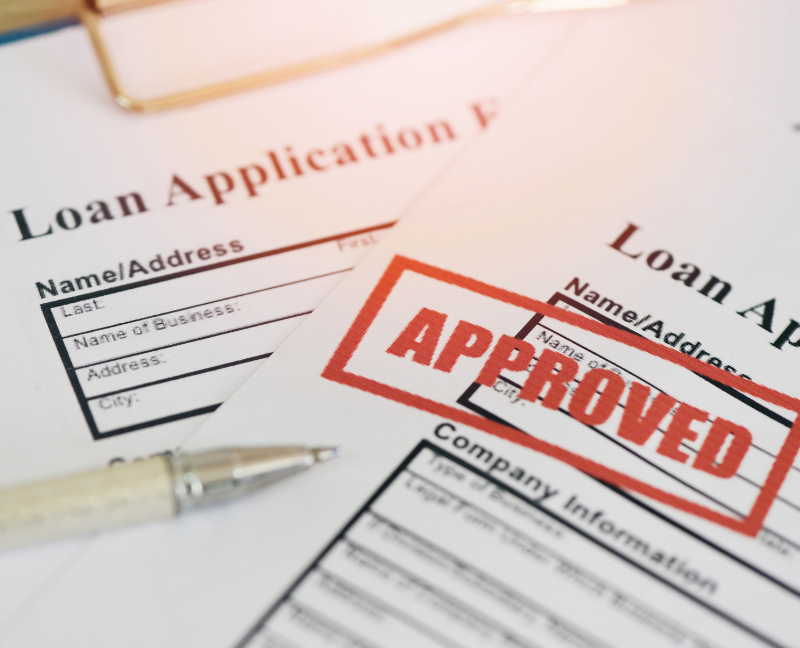Real estate investment is one of the most efficient and secure methods to increase your money and net worth. However, despite being a popular option for many people to increase their wealth, there are still questions, such as: "Are real estate investments good?"
To be clear, this post is not about buying houses to live in; instead, it's about purchasing properties for the sake of earning positive cash flow.
Having a roof over a head is a commodity, and that's more than enough reason for you to believe that there's money in real estate. Below are some ways how millionaires use properties as their investment:
Buying a property to be rented by tenants is a great source of passive income. Yes, you will spend money to purchase a house, but once it's ready for rental, you have monthly passive cash flow.
This option helps millionaires become more affluent, especially since it's not connected with their limited time. This also gives real estate investment an advantage over investments in stocks. When investing in stocks, you make money only after the stock's value increases and you sell it.
Occasionally, houses lose value, but real estate usually rises over time. As the loan is paid, your net worth increases and your property appreciates. Appreciation can be "forced" by specific property upgrades or caused by market growth.
If you want a property that both appreciates and increases its value, investing in an apartment is a good idea. Even if it's old and in bad shape, renovating the unit can help increase the rental fee and build value over time.
Owning property has various tax benefits. The government long prioritized real estate investment, so property tax deductions, no self-employment tax on rental income, and more help people cut their taxes. Despite earning more, real estate investors often pay less taxes due to tax perks. This is why millionaires had real estate investments.
One of the most significant advantages of real estate investment is the leverage capacity. Millionaires are aware that they are not constrained by their means. To increase your riches, you can use other people's resources.
There are four ways to increase your real estate strategy and invest alternatives through leveraging leverage;

Principal paydown helps real estate investors develop wealth. With each interest payment on your OPM mortgage, you pay back some principal and get closer to owning the house. This builds equity and wealth. That's even better when your renters pay down a cash-flowing income property and help you develop wealth and equity.
A property refinance involves a new mortgage. If your home has equity, you can refinance cash. Cash-out refinances are better because they are tax-free. You took this income tax-free. An intelligent investor will utilize this cash-out refinance to purchase more income properties and increase her fortune.
Investing in real estate did not only prove to be profitable; it also shows how effective it is in giving you more time and freedom.
If you're considering diving into this, our team at RE/MAX Advanced Realty - Indy Home Pros is here to help! Call us at 317-316-8224 or click this link to get started.
When talking about credit history, it is most likely related to how someone handled debt in the past and what is going on with their money right now. Credit history can include information about the accounts a person has opened, how long they've been open, and if the account holder made timely payments.
But there's a lot more to learn, such as how credit history is included in credit reports and how it affects credit scores and lending decisions. Understanding how these elements fit together will help you better manage your credit. And this post will help explain some of the basics.
Credit history is a record of how a person handles his finances like money, debts, credit cards, and other existing loans. A credit history may include information about a person’s account, how long they’ve opened, the in and out of the money on the account, and whether the account holder made payments on time. It starts when you apply for a credit card or a loan and can influence your financial life, so it’s important to build and maintain a positive history.
These are just some of the questions you might have in mind, and to understand and answer these, let’s dive deeper into credit history.
A credit report is a detailed listing of all your current and past debts, your credit cards and loans listed on your name how much you owe to lenders, and If you are good in paying your debt in time.
Credit score, on the other hand, is like a measure of how a lender can see you as trustworthy with money to pay for a loan. It’s a prediction of your credit behavior based on the information from the credit reports. It has a score ranging from 300 to 850.
There are things that affect your credit rating, including payment history for past and current debt, how you maximize your credit limit, and the length of your credit history.
So basically, it is a report on your debts, repayment of debts, and how you responsibly repay all of them. It is then added to your credit report, which includes a full breakdown of the number and types of loans that you have, the amounts owed, available credit used, the number of recent credit queries you have made, and invoices you have paid on time. It also indicates whether you have any bankruptcy, liens, or collections.
If you’re wondering how you can access information on your credit history, you can ask for a free copy of your credit report from credit bureaus.
You can see steps and view your updated credit reports at no cost online, too. Viewing it free online gives you an advantage to monitor if there are any changes in your credit.
Importance of Credit History
Credit history is extremely important, especially to lenders. When you apply for a personal loan, credit card, mortgage, and more, the information on your credit history is used to decide whether they will lend you financial help or not. They will also use the information on your credit history to calculate your credit score.
Lenders will review the credit history and assess your recent activities, the patterns, and regularity of repayment over longer periods. It’s good to have a positive credit history for a better chance of getting approved.
Good Credit History
When can you say you have a good credit history? It’s simple, having a good credit history means that you are paying your bills on time and you’re not carrying large amounts of debts with you. Having a good credit history means you are a lower-risk borrower. Getting a good credit history can get you a better chance of being approved for loans and having a lower interest rate.
You can maintain a good credit report by paying all your bills in full on time every month. Keeping at least one credit card is enough to maintain and keep the balances low, don’t exceed your limit and only use 30% of your available credit. By checking and monitoring regularly you can determine if there are any errors and can correct them as soon as possible.

Bad Credit History
Contrary to good credit history, bad credit history means you are not paying your bills on time and have a large amount of outstanding balance.
The question is: What can contribute to a bad credit history? Excessive use of credit cards above the limit, late or missed payments, having a lot of credit cards, and other financial loss.
When you have bad credit, it can lead to lenders finding it difficult to give you a loan, and if so, it will be at a higher interest rate and credit limits are low.
How can you turn bad credit history into good credit history? It’ll take time, and it may take years but slowly you can do it by paying your bills on time, cutting unnecessary credit cards, and checking your credit score which has the most negative factor, and starting from there.
Having No Credit History
Individuals who have no credit history are sometimes from the group of young adults and college students who don’t have yet credit cards or bills that are named to them. Having no credit history means it is difficult to get approved if you seek financing as credit history demonstrates the ability of a person to make payments on time.
How to start having a credit history?
You can start by taking small steps. Apply for a credit card that has a secured deposit. You can also become a supplementary user on another person's credit card and build your credit history. Don’t maximize the use of your credit card and paying your bills on time can help you get a credit history and a good one.
Bottom Line
Having the right knowledge to understand your credit history can lead you to good credit history. A good credit history can open doors for financial opportunities, increasing your chances of approval with lenders when you apply for a loan.
Having a good credit history also means you are offered better rates on loans. When you know what goes into your credit history, there’ll be fewer problems and you can strategize how you can maintain a good and strong credit report.
Getting your house ready to sell can create all types of stress and anxiety. If you’re like most sellers who are nervous and don’t know how to prepare, the right approach can attract the right buyers so you can have the best deal price possible for your home.
Selling your home can consume you a lot of time and can be overwhelming. Making your home ready can increase your chance of getting a solid offer from a buyer. Follow these must-do steps and have your home ready for the market.
The first step is to put yourself in a seller's shoes. Research the value of your home. You can gather a few pieces of financial information. Having the knowledge and idea about your estimated payoff amount on your current mortgage including your remaining balance, and interest can give you an idea of potential profit as you set your listing price.
You can do comparable sales of similar homes you have in your neighborhood, compare them, and figure out your appropriate listing price. You can also have an Indiana real estate agent and have your home CMA. The documents will then be compared to your home and the recently closed sales in the market to know and determine its list price. Look closely at this data. Pay close attention to various details such as square footage, location, and features.
List a professional Indiana real estate agent to list your home. Finding a listing agent can minimize your stress and maximize your profit. You can interview a listing agent and ask about their experiences around your location. You can determine if the agent is the right fit by asking them some questions, such as how much experience do they have, percentage of listing they can sell, and the plans on how to market your home.
They can guide you through the process and manage selling tasks, like social media expertise, marketing, pre-listing, and negotiating that can help you sell your house. A good real estate agent can give you advice on how you can aesthetically get your home ready for the market.
First impressions are everything. Your home must be properly staged when people have walked through. You want your home to be clean for potential buyers. Give your house a thorough cleaning, especially odors and stains. You don’t want any weird odor or stain to hinder you from having potential buyers.
You can also hire a professional cleaner to clean. It's relatively inexpensive and will consult you on the best way to lay out your space. This may be the easiest way, plus you won’t stress yourself from doing the physical labor.

Potential buyers want to imagine and envision themselves in the home. Remove all personalized decor and family photos to create a space that will look like a new home to help them imagine the house as their own. Once you have everything removed, decluttered, and depersonalized, you can ready your home to stage and have the perfect shot.
Getting a pre-sale home inspection is one of the investments you can make to have your home ready for buyers. They will want to know if anything has been fixed or needs fixing.
Buyers will have an idea and help alleviate any concerns. Any issues that the home inspector found can be addressed before putting it on the market. This can also make you at peace as you don’t need to worry if you run into any nasty surprises while in the middle of selling your home.
Of course, when you look for a house, imagine yourself in it. It helps when you see everything fully furnished. Same when you want to sell your house, staging your home can help in selling your house faster and get you more money.
The good news is that decorating your home’s interior can be easy and affordable. A home with furniture is easier to imagine than a blank slate. Making your home’s curb appeal from the living room to the dining and every room in the house.
Start on the outside of the home as buyers will have a first look at it before they enter your house. Make sure that the grass is cut and well maintained and everything has been removed (e.g., children's toys and playhouse). You can also apply a new set of paint on your exterior walls if needed.
When you decide to sell your house, you include photos to attract buyers to look for it personally. Uploading a high-quality photo can be a key to getting their attention, especially if the home is already staged and ready for photos.
You can do it yourself if you want to, with the right angle and lighting you can make a perfect shot for your home.
You can also hire a professional to take a photo of your home since they are more skilled in taking better shots they can make your home look good as it is personally.
The best time to sell a house is considered to be the month of May – homes tend to sell faster during this month. Still, it will depend on you on what’s the best time for it to sell and may consider different factors. If you’ve decided to sell your home, start preparing it right away. Make a list, set an estimated timeline, complete any necessary improvements, and get your home ready to sell.
Are you planning to buy a home?
If yes, one of the steps you have to consider is creating a financial plan. As they say, buying a property is a big financial decision, therefore, having a goal in mind is a must.
When pursuing financial goals, consistency makes a huge difference. Another helpful tip is listing down your budget and sticking it somewhere you can see it easily. This will help you stay motivated, accountable, and disciplined.
Below are more tips to help you reach your financial goals for your dream real estate in Indiana.
Saving is a portion of your income not spent on current expenditures. Most people put them in a bank while others put them in investments.
As we all know, financial freedom doesn’t just happen overnight. Therefore when saving money, you have to be consistent and committed to it. You can start by saving at least 10% of your total income per month. Depending on your income, you can increase this little by little until you reach your goal.
Pro Tip: When saving money, determine your short-term or long-term goals. This will help you from overspending or become mindful of your spending habits.
When setting goals, it should be three things -- realistic, achievable, and specific. This will help you focus on what you want to happen.
It might also help if you connect your financial goals to your "why." For instance, you live with your in-laws. Now, the reason you are saving a specific amount to buy a house is because you want your growing family to live on your own.
Set a clear vision of what you’re saving for. Identify whether you’re saving for emergency repairs, your down payment, or furniture.
When you identify what your goal is, stay focused. Giving it a purpose also makes your sacrifices easier and your success sweeter.
Think and put into consideration the goals that you want to achieve. Write and place them where you can see them visually. This will not only serve as a reminder but a way to keep yourself motivated and committed.
When listing down goals, it might also help to add a timeline for each step. This can help you focus on each one by one and be on the right path.
Saving a portion of your monthly income can sometimes be challenging, and you may seem not to notice any progress in the first few months. However, as the months turn into a year, it will add up to a significant amount as long as you stay consistent.

Emergency expenses cannot be avoided. This could lead to stress especially when you are caught unprepared. Below are some common reasons that cause financial trouble:
Unemployment Or Unexpected Unemployment
Becoming unemployed, whether unexpected or not, means the same thing -- having no source of income. Of course, the best way is to find a new job or start a business that can cover your expenses.
Lower Than Usual Income
Whether it's because of your lifestyle or an unexpected increase in budgeting, having lower than the usual income can cause financial strain. If experiencing this, you can re-evaluate your expenses, adjust your budget, and live below your means.
Accident Or Unexpected Illness
Unexpected illness or accident leads to your budget increase due to medical expenses and sometimes it seems like the income is not covering the expenses you need. You can still survive by simplifying your lifestyle. Ask for assistance by reaching out to certain agencies and getting all the help that you need.
Getting Pregnant Or Having A Baby
During your maternity leave, your budget increases due to no income during this period. You can adjust and reduce your budget so it will fit your expenses.
Family Issues
Every family has its ups and down. Whatever issues you may have, you can seek help.
They will always be there for you.
We can’t predict what would happen so the best weapon for all the uncertainties is having an emergency fund.
Feed your mind with information that can help you improve and become financially literate. You can use various online resources and financial books to help you learn more about financial goals and how to be successful in growing and managing your money. Remember, learning is a never-ending process.
You can also seek some experts or the help of a financial advisor who can answer questions you may have and help you stay on track with your financial goals. Plus, you can also discuss things like your life goals and offer pieces of advice that will help you achieve them.
Once you’ve learned and gained the valuable knowledge that you need from reliable resources, you should take it into action. Strive hard to do better, especially in handling and budgeting your finances. Apply all the learnings and knowledge you’ve acquired and manage all your finances wisely.
Can you still have fun even while fixing your finances, saving money, and lowering your expenses?
The answer is YES!
Learning how to handle your finances and changing your spending habits can still be fun and exciting.
Even while saving a portion of your income to buy your dream home, you can also allot a few dollars to buy something you like. Treating yourself for doing a good job or just wanting to buy for yourself occasionally can also make you motivated to stick to your budget in the long run. Additionally, reaching financial goals will make you feel empowered to keep pushing forward so make sure to celebrate any milestones along the way.
There are a few low-cost ways to celebrate. You can take advantage of the free perks you have or discounted prices on coupons. This way you will not feel guilty spending some of your budget.
Want to learn more about saving money for your down payment or dream home? If yes, feel free to visit our website by clicking this link.
If you're borrowing a loan whether to buy a house, car, or other purpose, having a good credit score is a must.
Having an excellent credit rating helps not only with the lender's decision; it also gives you access to better interest rates and repayment terms. Getting good credit scores also unlocks access to the best rewards like a credit card that offers cash back, luxury benefits, and travel perks.
Your credit score is determined by the lender using several factors, such as your new and current credit, payment history, the amount owed, etc.
Credit scores range from:
On the other hand, there's a bad credit rating. A bad credit score is usually a result of missing out on payments like your monthly bills, loans, or credit card. So basically, a poor credit remark is when you have a lower-than-average credit score, and it can have a big impact when you try to apply for new credit.
When borrowing a loan, lenders will want to know your "creditworthiness," and they do this by checking information through your credit report. They will know if you’ve paid your loans on time, how you treated your past debts, and your existing loans (if there are any), which can indicate how you will likely pay the new debt.
Having a low credit score often means having a lower chance of getting the lender's approval; however, there are loan providers who might still let you get the loan but at the expense of getting higher interest rates since your credit score represents a higher risk.

Low credit scores, which range from 300 to 579, have a great impact on your chances of applying for credit, influencing the type of loan and products you’ll be approved for. It will also have an overall impact on your financial life.
Fair credit scores, which range from 580 to 669, could also hurt your chances of getting approved for loans. And if ever approved, you're most likely to get less favorable loan terms, such as high-interest rates or annual fees compared to those who have good credit scores and limited card choices.
Getting a poor or fair credit score makes it difficult to accomplish your goals because having low scores reduces your chance for a loan and less likely to have financial assistance. You should take action as soon as you can and work to have good credit. Pay on time, limit yourself from getting unnecessary things you won’t be needing and if possible don’t go all out with your credit limit. By doing so, you're increasing your chance of getting approved.
Private loan providers or banks will use your credit score to determine if you will be offered a credit card, mortgage, vehicle loan, or other credit products. This also helps them determine the interest rate and the credit limit you receive based on your capability to pay.
Excellent means extremely good. It is the highest tier of credit score you can have. Many of the best lenders or credit card companies require you to have good or excellent credit. If you want to benefit from annual statement credits, luxury and travel perks, and many more, you’ll need to have at least good credit. Meanwhile, if you have an excellent credit score, you can maximize approval odds and have a high chance to get the loan.
However, having an excellent credit score doesn’t guarantee you’ll get approved. Aside from having an excellent credit rating, there are also some factors to look for, such as your income, monthly payments, and financial picture.
Your credit score is more than just a number. It can have a big impact on your life. That's why you should take simple steps to avoid getting poor credit remarks. If you want to know your status or where you stand, some credit bureaus can help you check your score regularly.
To learn more about credit ratings or mortgages, feel free to visit our website or leave a comment below.
It’s no secret that real estate is considered a promising investment by many. After all, it has long been proven to be one of the ways to become wealthy. However, it doesn’t come with a map, and going for it alone can be risky and challenging. Luckily, there are ways that you can do to put yourself on the right track and be successful.
Nonetheless, encountering someone afraid of real estate investing is common. Some people believe that if they risk putting their money into real estate, there would be nothing left. On top of this, the negative thought is that it cannot succeed without investing large amounts of its own money. However, it is not true. Regardless of the market, one of the excellent ways to make money and build your wealth is still through real estate.
Some of the ways include:
Markets that are down may be the most fertile of opportunities. For a person to become successful in this field, they must possess courage, strength, and risk. Being creative and adaptable to change also helps in making your real estate journey a success.
It’s because the risk is minimized by the length of time you hold onto your property. When the economy is good, so is the market and your property. While certain universities offer general coursework and programs that will benefit the real estate investor, searching and listening to real estate investors' success stories can also help you. Not only will you learn tips on how to invest in real estate successfully, but you can also know their perspective by thinking like a pro!
Below are a few tips to get started:
The ability to see creative financing is always critical, especially in today’s market where everything is going up. However, the perspective of the most successful real estate investors might help and that is to always see opportunities everywhere.
It is common for investors to invest in properties that will generate a lot of profit or can multiply their initial investment. Studying and considering your education will help you in the long run. Making a strategy correctly can make a great return on investment.
Before entering into this investment you should always go for different options. Never invest in something that you are unsure of. Knowing and understanding what you are doing is the key to being successful in this business.

Knowing your local market and what is going on in it is important. Always avoid hot markets if you want to be successful, that’s a good rule of thumb. If you purchase on hot markets with rising rates, you risk buying it at its peak and losing more money. Your purchase and its rate of success will always be influenced by its surroundings and factors at work.
To become successful in real estate investment, the focus should be on the location of the property. The more neighborhoods you have the more its success rate will be. Invest in those neighborhoods which have high population density, are developing, and have all the basic amenities.
Consider investing in other places and cities that will give you a large pool of investments and better opportunities.
You don’t always have to grab every opportunity that comes your way. Remember that timing is everything. You can be successful and still go broke if every investment is mortgaged to the hilt. Try balancing it by having a good mix of safety and still stretching your resources.
Look for distressed sellers that haven’t put the property on sale as you can get it much lower than the market price value. Distressed sellers may be couples who got divorced or families that just wanted to sell the house and divide the profit. It could be someone that will move to another state or country and just want to sell it fast. Sometimes, buying from a distressed seller is better than foreclosure auctions. You’ll often find problems and lots of repairs that will double your cost.
You must understand this. You should always make room for costs like the repairs and other issues on the property you bought and not just the cost of the property and realtor commissions. Doing it DIY is a no-no as it detracts from the value of the house. Trying to fix it on your own makes it unsellable unless you’re a professional in the field and are capable of doing the work.
When buying a property, always aim to put down at least 10% to 20%. How can you manage risk? By having a large amount of cash reserve. Running to a lender can make you go into debt that also comes with a high-interest rate.
Maintaining a large money reserve will reduce the risk of having the property sell fast at a loss if you have the funds. Plus you don’t go deeply into debt. Managing the risk in the right manner will improve your chances of success.
Don’t go making any decisions on your property without knowing its rules. Before making any move ask if it’s allowed. Understand the degree of work that requires permission or permit before you start making any changes.
Becoming successful in life or in every aspect you are reaching takes time. The same goes for real estate, you have to step forward and take the risk to have that much-wanted financial freedom.
Real estate investment offers a variety of opportunities and better cash flow than the stock market if you know how to handle it well. Still, you need to have awareness and be extra careful so you can avoid mistakes that will cause you to go bankrupt.
If you want to learn more about real estate investing, our team at RE/MAX Advanced Realty - Indy Home Pros is here to help. Leave a comment or call us at 317-298-0961 to know the basics of real estate investing.
You'll eventually reach the long-awaited closing day if everything else is in line. When you attend your closing meeting, the home title is officially transferred and you become the new legal owner of the property.
Your closing day is all about wrapping up loose ends and finalizing the transaction. Signing all documentation, amending the deed, and paying your down payment and closing charges are all part of this process.
After their loan has been authorized and the Closing Disclosure has been signed, clear-to-close buyers are rarely refused. However, in some cases, a lender may deny an applicant at this point. These rejections are frequently the result of significant changes in your financial status.
Leaving your job, opening a new large credit line, or taking out another loan can all raise red flags with your home lender. If at all possible, avoid making any major improvements until the house is yours.
Once they're cleared to close, most buyers won't have to wait long to meet at the closing table. Considering this, you should have at least a 3-day buffer between obtaining the Closing Disclosure and closing.
You should also be aware that if you discover any blockages between the time you're cleared to close and the actual closure, your closing time frame may be extended. For example, if you discover substantial concerns with the home during your final walkthrough, you may need to postpone your closing meeting to provide the seller with sufficient time to make these repairs.
Is it better if I close at the end of the month?
If you arrange your closing near the end of the month, you will pay less in mortgage interest for the month in which you close. This might result in hundreds, if not thousands, of dollars in savings on closing fees. However, depending on your financial condition, it may make more sense for you to close at the beginning of the month.

What makes a mortgage commitment letter different from clear to close?
A mortgage commitment letter is an assurance from a lender that they would lend you money; nevertheless, obtaining the letter simply implies you have finished the underwriting procedure for the loan you have sought. Before your mortgage lender fully approves your loan and you are cleared to close, you or the property may still need to meet certain final criteria.
What are the underwriting standards for being clear to close?
Your lender will go over the underwriting standards you'll need to achieve to become clear to close in your mortgage commitment letter. Your lender may normally seek the following to determine whether you have met these conditions:
The Bottom Line: 'Clear to Close' Indicates You're Nearing the Finish Line
Although becoming CTC isn't the end goal for your loan, most home buyers can anticipate a closing date soon.
As with the other processes in your mortgage application, getting to your closing date as soon as possible will necessitate a thorough understanding of the clear-to-close process and what follows. Constant communication with your mortgage provider is critical to moving your application along swiftly, which is why it's critical to work with a lender you can fully trust.
While being clear to close indicates that you're nearing the end of the process, you can start your home-buying journey by becoming pre-approved. Knowing how much money you can borrow before you start shopping can allow you to shop smarter and make a more compelling offer when you find your dream property.
Most home purchasers are overjoyed when their lender tells them they are ready to close after going through the several steps of the mortgage application process - and for good cause. With underwriting, document verification, and the offer completed, being clear to close - also known as "CTC" - in real estate is a solid indication that your lender will provide you with the financing you require.
All of this is to say that just because you're clear to close doesn't imply you've arrived. Before you receive the keys to the property, you must fulfill a few final tasks.
"Clear To Close" simply implies that you've met all of the requirements and conditions for your mortgage to be closed. At this point, your lender has thoroughly examined your documentation and determined that you meet the requirements for the type and amount of mortgage you're seeking.
Lenders will normally begin planning for the closing day after a borrower has been permitted to close. Your loan officer will set a date and time for your closing meeting and will notify your title company, real estate attorney, and any other attendees. Your lender will also prepare any final documents that you will be required to sign on the day of your closing.

Clear to close necessitates a significant amount of effort on the part of both the lender and the borrower. Missing even one step could mean the difference between a fully cleared loan and an application that is declined.
To get your mortgage cleared for the closing date, you must first complete the following steps:
Working through each step contributes to the 30-45-day average time between underwriting and closure. If you want to reach CTC status as soon as possible, make sure you prepare your documentation ahead of time, complete your mortgage application, meet all of your underwriting requirements, and maintain an open line of communication with your lender.
Once your lender has informed you that you are ready to close, you will have completed the majority of the mortgage procedure. However, there are a few crucial steps between you and the property.
Your loan officer will give you a Closing Disclosure once you've passed underwriting and conditional approvals. This five-page document covers the terms and conditions of your mortgage agreement, offering a detailed breakdown of all the costs and fees you'll be responsible for when you sign.
Understanding your Closing Disclosure is one of the most crucial phases in the home-buying process because you are responsible for any charges listed. Check that you are not signing a document that has errors or terms that will interfere with your payback plan.
Even if you buy the house as-is, a final walkthrough after receiving the Closing Disclosure is your opportunity to check the property is in the condition you and the seller agreed upon. Although walkthroughs aren't officially required once you're cleared to close, neglecting a last check could be a costly error.
In most circumstances, the house should be ready to move into by the time you do the final walkthrough. However, if anything is amiss with the house, this is your final chance to fix it before it becomes your responsibility.
These are just some of the basic things you need to know about Clear To Close. In the next part, we’ll dive deeper into what happens after the Closing Day, frequently asked questions about Closing Disclosure, and more.
With everything that's happened in the world in the past few years, you may wonder if investing in real estate is still worth it?
The short answer is – yes. Investing in properties that increase in value over time like real estate is always a good idea. However, while investing in apartment complexes, commercial properties, and single-family houses can provide extra income and large payouts, it also carries risk. Right research and finding the best places to invest could make you rich as it will boost your solid income.
Purchasing real estate in Indiana currently has a lot of advantages, including passive income, equity, and monthly rents. These are just a handful of the benefits of investing in real estate.
When it comes to real estate investing, you have many choices. Depending on what you need or want, you can start by purchasing a small family home then later on have it rented out and collect the monthly rents. This way you earn money while waiting for its value to go up high enough to have a big profit when you decide to sell it in the future.
Buying a commercial space or lot will also give you monthly income. Alternatively, you may own a small commercial land and collect monthly rent from several businesses, including hair salons, food carts, and other enterprises. Apartment buildings with many units can also make a stable income.
However, like other investments, real estate doesn't always pay off. Sometimes the real estate you invest in loses value over time if you are not wise about it. Understanding the risk and doing proper research will help you avoid these situations as investing in real estate is still one of the smartest decisions you can make. Discussing further will help you what real estate investing entails and the benefits and possible pitfalls that come with it.
Buying into REIT or Real Estate Investment Trust is one of the easiest ways to enter and invest in real estate. In REIT, you invest in real estate without having to worry about maintaining or managing any physical buildings.
REITs are businesses that own real estate, including office, retail, hotel, apartment, and warehouse facilities. You buy a share of these properties when you invest in a REIT. Similar to mutual fund investing, however, a REIT deals with real estate as opposed to stocks.
Buying properties over time increases value. It can be an asset, you benefit from its gain value especially if the place is developed and with a flourishing population and establishments.
Choosing a perfect location closer to prime and commercial may immediately bring value to your investment in real estate such as townhouses and condominiums for sale to rise and grow shortly. When you choose wisely it will appreciate overtime typically at a rate that is much higher than annual inflation.
Another justification is that real estate is unquestionably one of the best investment options due to its low risk and high return potential. As property values increase over time, it offers protection against inflation. Aside from owning a primary dwelling, income production is one of the most crucial factors for parallel property investors. Buying it at its lowest and selling it high with its value.
Whether you invest in commercial real estate or residential you can never go zero because it's an asset that will always have value. It will give you a steady cash flow and also has a great return.
Investments like real estate is a long-term investment which means you can keep and hold it for several years and wait for it to appreciate and increase in value. At the same time, earning it monthly by renting it out while you wait for its value to rise if that's your goal.
Developers with a good reputation have more credibility. You will know it by looking at their previous projects and checking the quality if it lives up to your expectations. Doing a bit of research and reading reviews will also help you decide to go and look for options. You may ask your real estate developer to help you maximize your real estate investment by looking for affordable house and lot packages, condominium units, or commercial spaces.
When the economy is good, many companies open, and the opportunity for renting commercial space or residential space is high. Another method to gain from purchasing real estate now, such as commercial spaces, is that it provides real estate investors with numerous options to buy, hold, and sell assets.
Furthermore, One advantage of purchasing real estate is that there are no restrictions placed on your property which allows you to have full control of your investments. It's like earning money in the comfort of your own home, generating passive income through rent income from these office spaces.
You are the master of your own time like a boss! So, explore when you buy as there are a lot of possibilities and infinite opportunities await.

Real estate investing has tax advantages. Your property taxes, property management fees, property insurance, the cost of continuing upkeep, the cost of repairs, and the money you spend advertising your property to potential renters are just a few of the expenditures related to owning an investment property that can be written off.
The gain you realize if you sell your property for more than you paid for it won't be subject to income tax. Instead, it will be subject to capital gains tax, which has generally lower tax rates than income tax. Even less capital gains tax will be due if you invest in communities known as opportunity zones.
Real estate investment you can't afford in full can go to leverage funds. In real estate, this means that you're using other people's money to purchase properties. Taking loans from a bank, mortgage lender, or union is an option and has a selection of how you will pay them back over time.
Having your own investment property lets you be your own boss, which many investors find rewarding. These are the advantages that aren't financial with owning investment properties. Providing rental housing or attracting businesses to commercial sites that will offer much-needed services to local communities are fulfilling.
As recession fears grow, you may be wondering how a recession affects house values. A recession can have an impact on property prices, but you should not expect home prices to decline. Any change in housing prices during a recession will be influenced by unique circumstances. These are the supply of available homes for sale, as well as the health and size of the active homebuyer audience.
Every day, we assist clients in determining the value of their real estate in Indiana. If you're not from Indiana but want to know what happens to housing values during a recession, keep reading.
A recession is a major reduction in economic activity that lasts for a lengthy period of time.. Recessions usually affect the majority of the economy, including the property market. A recession can have a variety of effects on the property market.
The most likely result is decreased overall activity. Fewer transactions will come from fewer sellers wanting to sell and fewer buyers willing to acquire. During a recession, observers and experts in the housing market should expect fewer home sales and purchases.
Second, the market's buyer and seller behavior will shift. More expensive house sellers may become more willing to negotiate with homebuyers. Homebuyers may benefit from this. Homebuyers, on the other hand, are likely to become more protective about property pricing and more demanding of concessions.
Finally, during a recession, housing prices can become more volatile. However, a significant price reduction is not guaranteed. Home prices are affected by housing demand, employment rates, interest rates, and inflation.
During a recession, housing prices might rise, fall, or remain flat. Both supply and demand are required in the housing market.
To better grasp what to expect or to make more accurate predictions regarding the housing market during a recession, you must first understand the elements that drive housing supply and homebuyer decision-making.
The following factors have the most sway over the US housing market. Understanding this will help you better predict what will happen to housing values during a recession.
Unemployment Rates
During a recession, the unemployment rate will affect real estate prices. If unemployment remains low, many people will remain confident in their ability to earn a living. This will boost homebuyer confidence and encourage greater property prices. However, if the unemployment rate rises, many purchasers will become hesitant and wait for a certain moment to buy a property. In this case, housing prices will plummet.

Interest Rates On Mortgage
Mortgage interest rates have a significant impact on home values. If mortgage interest rates are high and rising, there is a considerable likelihood that housing values will fall during a recession.
For starters, a higher mortgage interest rate increases the cost of borrowing money to purchase a property. As a result, to get the same repayment price, the buyer must offer less for the residence. Buyers can also offer the same amount but will have a higher mortgage payment due to the increased mortgage interest rate.
Second, rising mortgage interest rates reduce home prices by harming present homeowners. A family that owns a home but needs a larger home is unlikely to go from, say, a 3% mortgage rate to a 6% mortgage rate. Instead, that family will try to wait for the mortgage rate to fall. This restricts supply because that family is not selling, but it also removes activity from the market.
Finally, many first-time buyers will become dissatisfied with the process of purchasing a property. They saw the earlier lower rate as a squandered opportunity. Many people would prefer to wait for the cheap rate to return in the future. Again, during a recession, this activity will reduce total activity and may result in reduced property prices.
Wage Growth Vs. Inflation Rate
Inflation and salary growth go hand in hand. Consumers will feel the pinch as costs for basic goods and services rise. Homebuyers will be unwilling or hesitant to pay high costs for a property if prices rise faster than wages. If salaries do not keep up with inflation, house prices will fall during a recession.
Quantity Of People Within Specific Age Brackets
The size of the active homebuyer audience is important. The more people who are ready to buy a property at the entry level, the more activity and housing demand there will be in the housing market. This will cause housing values to rise. However, if there are few prospective buyers at the entry level, property prices will fall owing to a lack of housing demand.
The most significant factor to consider is the number of people aged 25 to 35 at the bottom. The United States currently has over 44,000,000 people in this age bracket, which is the highest number in history. This is one of the key reasons why the property market has performed so strongly since 2019. This big entry-level base will also help to stabilize housing values amid a 2020s recession.
Supply Quantity And Quality
What happens to house prices during a recession is heavily influenced by housing supply. However, supply comes in two parts.
The first component of supply is quantity. This aspect of supply is often mentioned. If supply is limited and demand is high, property prices will rise. If there is more supply than demand, housing prices are projected to fall. During an economic slump, the other component of supply that is less discussed becomes highly significant.
The other side of supply that is rarely discussed is the supply's quality. Specifically, the supply's aspirational desire. Homes must entice prospective buyers. For years, the same sorts of homes and home styling have been built in numerous sections of the country.
As a result, folks who can afford the latest and greatest in new homes may be hesitant to purchase. This is because the newest stock is uninteresting. This will create a bottleneck by keeping the middle tier of the market in their current homes owing to a lack of desire to relocate.
We hope that this post has enlightened you. If you have any questions or want to learn more about real estate, please call us at 317-298-0961 today!

8313 W. 10th St
Indianapolis IN 46234
dennis@indyhomepros.com
317-316-8224